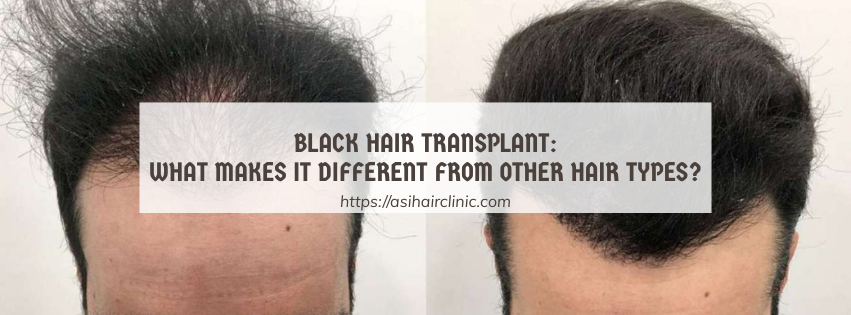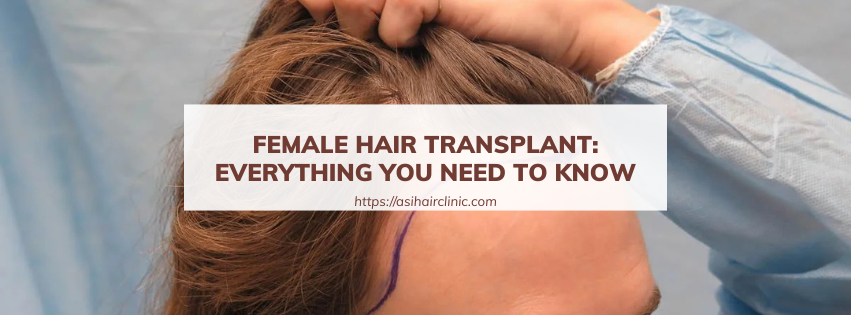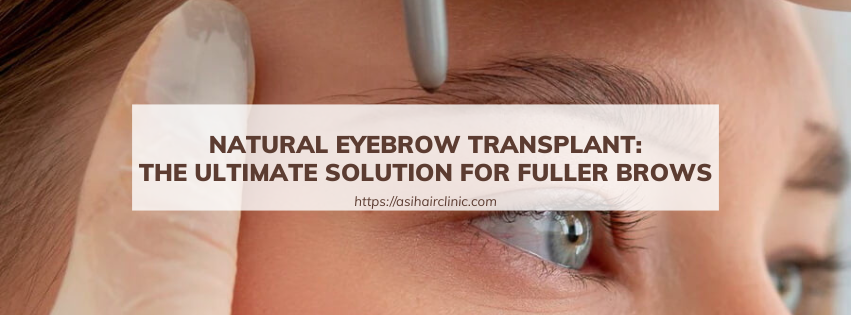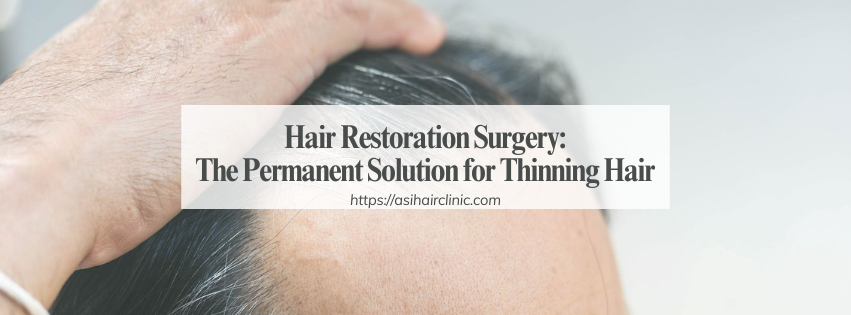The Best Age for a Hair Transplant
Hair loss is a significant concern that affects millions of individuals across the globe. This issue can stem from various factors, including genetics, aging, stress, and underlying medical conditions. Many people find hair loss to be a tremendous source of anxiety and self-doubt. While numerous remedies exist to address thinning hair, hair transplantation stands out as one of the most effective and lasting solutions available today. However, there is often uncertainty surrounding the optimal age to undergo a hair transplant. Since the ideal timing for this procedure varies based on several individual factors-such as hair loss patterns, overall health, and personal aspirations-this article will serve as an extensive guide. We will investigate the intricacies of hair transplants while specifically focusing on the age factor, equipping you with vital information to help make a well-informed decision.
1. The Factors Influencing the Ideal Age for a Hair Transplant
Determining the best age for a hair transplant is not straightforward, as it is influenced by a variety of individual circumstances. Several critical aspects should be considered when evaluating the timing of the procedure:
1.1. Hair Loss Pattern and Progression
Stable Hair Loss: One of the first factors to assess is whether your hair loss pattern has stabilized. If you are experiencing gradual and predictable hair thinning without any signs of rapid recession, it may be advisable to postpone a hair transplant. Stable hair loss allows for a clearer assessment of potential future hair loss, making it easier to plan accordingly.
Rapidly Receding Hairline: Conversely, if your hairline is receding quickly, opting for a hair transplant at a younger age may be beneficial. Early intervention can address hair loss before it significantly progresses, helping to maintain a more youthful appearance. By acting sooner rather than later, you may be able to minimize the future impact of hair loss.
Predicting the Extent of Loss: An experienced hair transplant surgeon can analyze your specific hair loss pattern and provide insights into its trajectory. They will evaluate factors such as family history, genetics, and lifestyle, assisting you in making informed decisions about when to undergo the procedure. Predicting how much hair loss you might experience in the future will play an essential role in determining the right timing for your hair transplant.
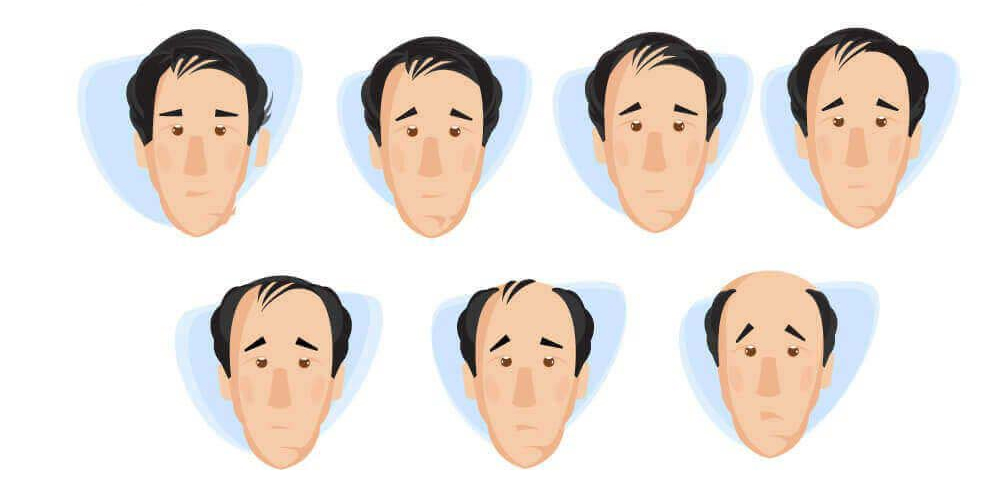
1.2. Hair Density and Donor Site
Adequate Donor Area: An important consideration for hair transplant candidacy is the state of the donor area. A sufficient number of healthy hair follicles are necessary to support the transplantation process. Individuals with higher hair density may find themselves suitable candidates for a hair transplant at a younger age, allowing for greater flexibility in their approach to hair restoration.
Limited Donor Hair: For those facing limited donor hair density, it may be wise to wait until they reach a certain age where hair loss has stabilized. This approach helps ensure enough donor hair is available for successful transplantation. Additionally, having a mature donor area with stronger follicles increases the chances of positive outcomes.
1.3. Overall Health and Medical Conditions
General Health: A person’s overall health plays a crucial role in determining their candidacy for a hair transplant. Generally, individuals in good health without underlying medical issues are likely to have better outcomes. Healthy individuals typically experience fewer complications during surgery and recovery, leading to improved results.
Medical Conditions: Pre-existing medical conditions, such as diabetes, cardiovascular disease, or autoimmune disorders, can impact the hair transplant procedure's success. Therefore, consulting with a healthcare professional is essential to address any health concerns before proceeding with the surgery. It may also be necessary to manage existing conditions adequately to minimize risks associated with the procedure.
1.4. Personal Goals and Expectations
Appearance and Confidence: The desire to achieve a more youthful appearance or enhance self-confidence are among the most common reasons individuals seek hair transplantation. For many, the prospect of regaining lost hair provides a sense of renewed vitality. If these goals resonate with you, you may want to consider pursuing a hair transplant earlier in life.
Realistic Expectations: It is crucial to maintain realistic expectations regarding the outcomes of a hair transplant. While the procedure can yield significant improvements, it may not fully restore your original hairline or completely halt future hair loss. Understanding the limitations will help you set achievable goals and make informed decisions about your hair restoration journey.
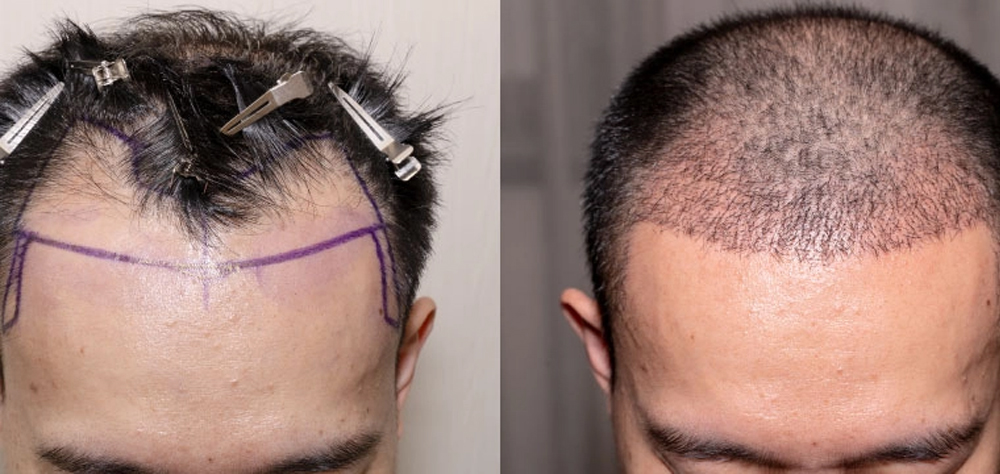
1.5. Financial Considerations
Cost of Surgery: Hair transplantation can represent a considerable financial investment. When contemplating the best age for a hair transplant, it is essential to factor in the cost of the procedure, potential additional expenses, and any future maintenance treatments that may be required. Assessing your budget and understanding your financial readiness will contribute to making a sound decision.
Financing Options: Many clinics offer financing options or payment plans that can help make hair transplantation more accessible. It is worth researching and discussing these options with the clinic to determine what arrangement would be most suitable for your situation. Exploring different payment structures may allow you to prioritize hair restoration within your financial means.
2. The Pros and Cons of Getting a Hair Transplant at Different Ages
Understanding the advantages and disadvantages of undergoing a hair transplant at various ages will lend clarity to your decision-making process. Each stage of life presents unique benefits and challenges that may affect your experience.
2.1. At a Younger Age (Late Teens to Early 20s)
a. Pros
More Time to Benefit: One of the primary benefits of getting a hair transplant at a younger age is the extended time you have to appreciate the results. Early intervention allows for prolonged enjoyment of a restored hairline, which can translate into enhanced self-esteem and confidence.
More Natural Hairline: Hair transplants performed early in life can lead to a more natural-looking hairline. As the donor hair has a longer duration to integrate and grow, it can blend seamlessly with existing hair, creating a harmonious aesthetic that appears less artificial.
Less Extensive Hair Loss: Opting for a hair transplant in the early stages of hair loss is advantageous in addressing the problem before it escalates. By intervening sooner, you can effectively manage the condition, reducing the need for larger transplant procedures in the future.
b. Cons
Hair Loss May Continue: Despite the success of a hair transplant, younger individuals may still experience ongoing hair loss. This progressive nature of hair loss can lead to the necessity for additional procedures down the line, which could prove inconvenient and costly.
Limited Donor Hair: Some individuals in their late teens or early twenties may lack sufficient donor hair density to support a successful hair transplant. In these cases, waiting until a more mature age may provide better donor hair availability, ensuring optimal results.
Financial Implications: Choosing to undergo a hair transplant prematurely could result in unnecessary expenses. It is imperative to weigh the benefits against potential future costs, as early treatment may not always be the most financially sound decision.

2.2. In Middle Age (30s to 50s)
a. Pros
Stable Hair Loss: Individuals in their thirties and forties are often more likely to experience stable hair loss patterns. This stability facilitates better predictions regarding future hair loss, aiding in planning for effective transplantation strategies.
Mature Donor Area: By middle age, the donor area typically exhibits greater hair density and stronger follicles compared to younger years. This advantage allows for more successful and efficient transplantation procedures.
More Experience with Hair Transplant Surgeons: As the field of hair restoration continues to advance, individuals in this age group benefit from a broader range of established and experienced hair transplant surgeons. These professionals possess valuable expertise, which can enhance the likelihood of successful outcomes.
b. Cons
Increased Hair Loss: While stabilizing, hair loss may be more extensive in individuals in their thirties and beyond. This increased degree of hair loss could necessitate a larger transplantation effort, complicating the procedure and potentially leading to additional costs.
Potential for Scarring: Middle-aged patients may require more extensive incisions due to thicker skin in the donor area, resulting in visible scars post-surgery. Minimizing scarring is a vital consideration in planning the procedure, as patients might wish to avoid noticeable marks on their scalp.
Limited Natural Hairline: At this age, the transplanted hair may not grow as seamlessly with existing hair, impacting the natural appearance of the hairline. Patients should discuss this possibility with their surgeon to establish realistic expectations.
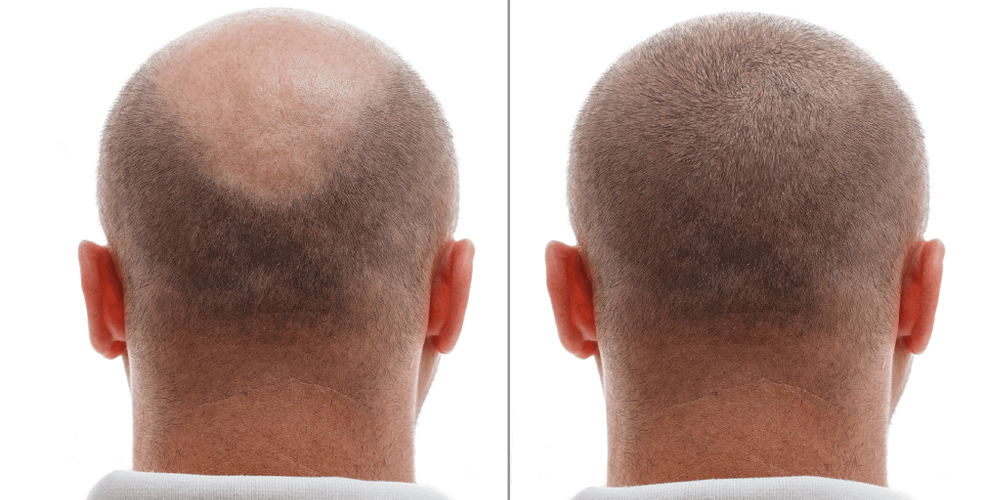
2.3. At an Older Age (60s and Beyond)
a. Pros
Healthier Scalp: Older individuals may possess a healthier scalp, as it often becomes less prone to complications than younger counterparts. This aspect enhances the safety of the surgical procedure and can lead to better healing outcomes.
More Stable Hair Loss: Hair loss patterns tend to become more stable as individuals reach older age. This stability simplifies the prediction of future hair loss and allows for better planning regarding transplantation strategies.
Established Hairline: Transplanted hair can integrate more easily with the existing hair in older patients, creating a seamless look. This natural blending effect contributes to more aesthetically pleasing results.
b. Cons
Slower Hair Growth: Another consideration for older patients is the slower rate of hair growth, which may delay visible results after the surgery. Patience becomes paramount during the recovery period, as it may take longer to experience the full benefits of the procedure.
Increased Risk of Complications: Older individuals may have pre-existing medical conditions that could heighten the risk of complications during or after the surgery. As such, thorough consultation with a healthcare provider is essential to identify and manage any potential concerns.
Lower Donor Hair Density: Donor hair density may decrease with age, limiting the number of follicles available for transplantation. This limitation could affect the procedure's efficacy, emphasizing the importance of assessing donor hair quality beforehand.
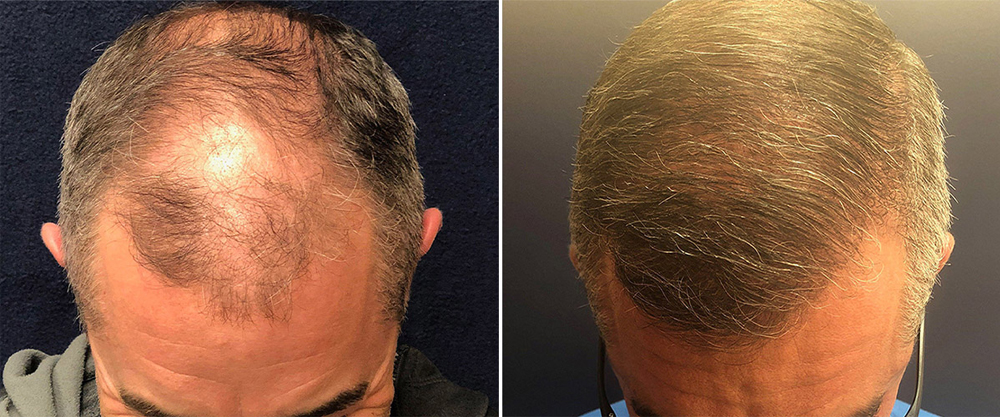
3. When to Consult a Hair Transplant Surgeon
If you are contemplating a hair transplant, seeking the guidance of a qualified and seasoned hair transplant surgeon is pivotal. Their expertise can help evaluate your individual requirements, hair loss pattern, and medical background to determine if a hair transplant aligns with your needs.
During the consultation, ensure you inquire about the following:
Their Qualifications and Experience: Establishing the qualifications and experience of your chosen surgeon is fundamental. Request to see before-and-after photos of their previous patients to gain insight into their skills and results. Verify their credentials and training to confirm their authority in the field.
The Procedure Itself and Post-Operative Instructions: Understanding what to expect during the hair transplant procedure and the subsequent recovery phase is critical. Discuss the details of the operation, including anesthesia, duration, and techniques used. Familiarize yourself with post-operative instructions to facilitate smooth healing.
The Cost of the Procedure and Any Associated Fees: Discussing the total cost of the procedure upfront is crucial. Understand what is included in the quoted price and inquire about any additional fees, such as follow-up appointments or medications. Clarifying the financial implications will help you make a more informed decision.
Potential Risks and Complications: Every surgical procedure carries inherent risks. It is essential to ask your surgeon about potential complications associated with hair transplantation and how they are managed. Knowing what to expect will empower you to prepare adequately for the procedure.
Conclusion
Ultimately, there is no definitive answer to the question of the best age for a hair transplant. This highly personalized decision hinges upon numerous factors, including hair loss patterns, overall health, personal goals, and financial considerations. Consulting with an experienced hair transplant surgeon is critical to finding the ideal timing for your unique situation. By carefully evaluating the pros and cons of the procedure at various ages and making a well-informed decision, you can increase your chances of achieving the desired results and regaining your confidence. A hair transplant can be a transformative experience, revitalizing not only your appearance but also your self-esteem and outlook on life.
LATEST POSTS

